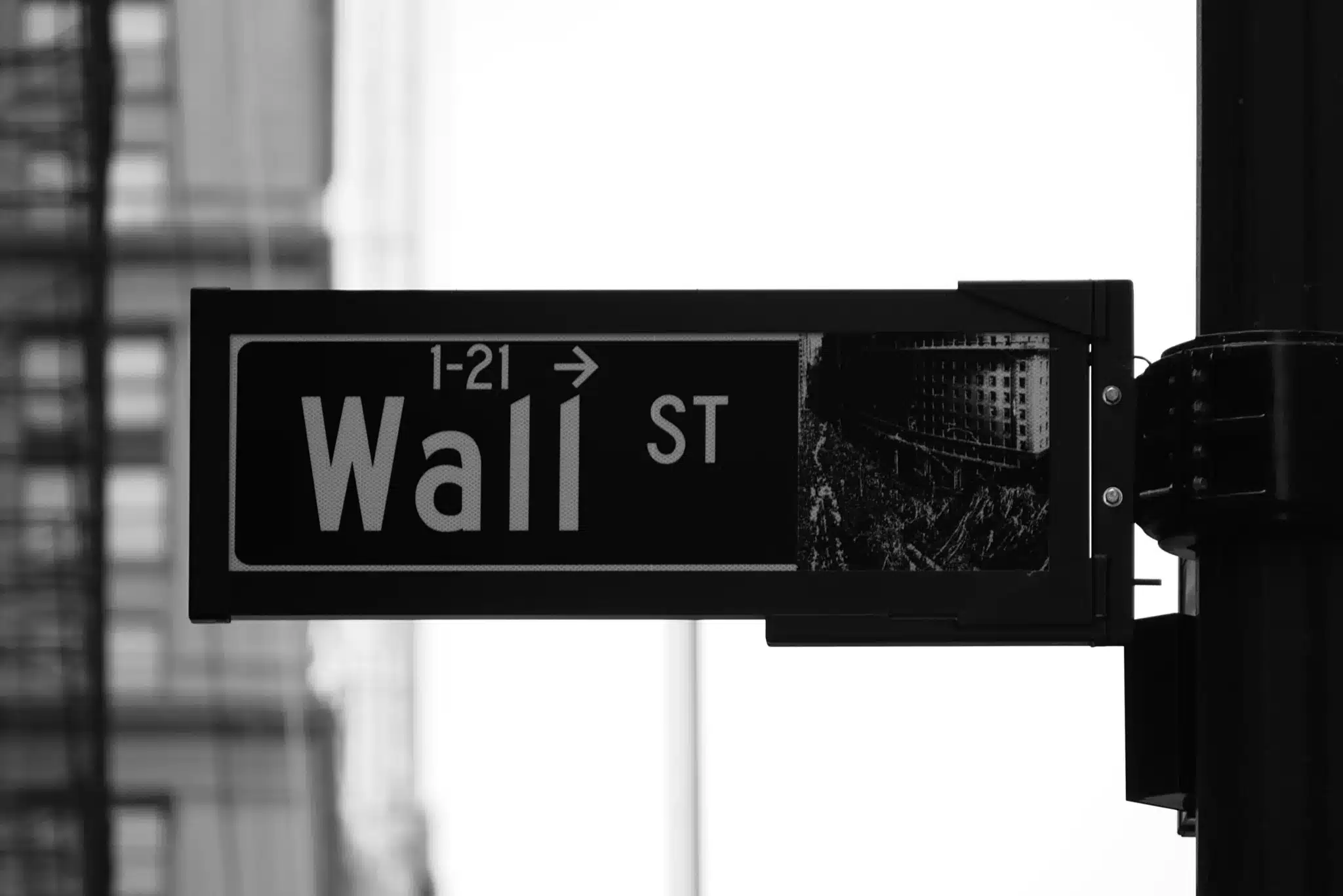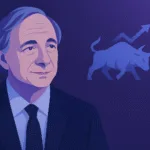Bill Ackman is one of the most recognisable names in modern investing. Known for his outspoken views, bold bets, and activist strategies, Ackman has built a career defined by conviction. He is the founder and chief executive of Pershing Square Capital Management, a hedge fund that has taken on some of the biggest companies in corporate America. Loved and criticised in equal measure, Ackman has earned a reputation as both a visionary and a controversial figure.
This legendary investor profile explores his journey, the evolution of his investment style, some of his most famous wins and losses, and the influence he continues to wield in financial markets.
Bill Ackman: Life & Career Timeline
-
1966Born in New York
William Albert Ackman is born in Chappaqua, New York, to a family in real estate finance.
-
1988Harvard College
Graduates with a bachelor’s degree in social studies.
-
1992Harvard Business School
Completes an MBA and moves into investing and entrepreneurship.
-
1992–2003Gotham Partners
Co-founds Gotham Partners; early activist deals bring attention before the firm winds down in 2003.
-
2004Pershing Square
Launches Pershing Square Capital Management with a concentrated activist strategy.
-
2006Pershing Square Foundation
Creates a philanthropy focused on education, health, and social impact.
-
2014Permanent Capital
Lists Pershing Square Holdings in Amsterdam, securing permanent capital for long-term positions.
-
2019Marries Neri Oxman
Personal milestone alongside continued philanthropy and cultural initiatives.
-
2020Pandemic Hedge
Executes a notable credit-protection hedge and redeploys proceeds into equities.
-
2021–PresentUMG Stake & SPAC Experiment
Builds a long-term position in Universal Music and explores innovative deal structures.
Early Life and Education
William Albert Ackman was born in 1966 in Chappaqua, New York. He grew up in a comfortable family environment, with his father running a real estate financing firm. The world of business and finance was not far from daily life, and Ackman developed an early interest in markets and entrepreneurship.
He studied social studies at Harvard College, graduating with a bachelor’s degree in 1988. Later, he earned an MBA from Harvard Business School in 1992. At Harvard, Ackman distinguished himself with a sharp intellect and a willingness to challenge conventional wisdom, qualities that would later define his investment career.
Starting Out: Gotham Partners
After business school, Ackman co-founded his first investment firm, Gotham Partners, with David Berkowitz. The fund started with modest capital but quickly grew as it delivered early successes. Gotham specialised in small to mid-sized investments, often with an activist edge, where Ackman sought to influence management decisions to unlock value.
Gotham Partners attracted attention for its boldness but also faced controversy. The firm became entangled in complex and illiquid investments, including golf course companies and a real estate venture in New York. Disputes with investors and regulatory scrutiny eventually led to the fund’s closure in 2003. While the experience was bruising, it shaped Ackman’s philosophy and resilience. He has often referred to Gotham as a formative chapter, teaching him lessons about risk, liquidity, and the importance of focus.
The Birth of Pershing Square

In 2004, Ackman launched Pershing Square Capital Management with $54 million of his own and outside capital. From the outset, Pershing Square differentiated itself from typical hedge funds. Rather than running a broad, diversified portfolio, Ackman concentrated on a small number of high-conviction positions. He combined deep research with activist engagement, pushing companies to restructure, spin off assets, or change management.
The approach was high risk but also high reward. Concentrated positions meant that a successful bet could generate enormous returns, while a wrong call could drag down the entire fund. This barbell of risk and reward became Ackman’s hallmark.
Investment Philosophy
Ackman describes himself as a “concentrated value investor with an activist approach.” At the core of his philosophy is the belief that markets often misprice companies, particularly those suffering from underperforming management or inefficient structures. By taking large stakes and agitating for change, he believes he can unlock hidden value.
His process involves deep fundamental analysis, often producing detailed presentations that run into hundreds of pages. Pershing Square is known for public campaigns that lay out the case for reform, targeting both boards and shareholders. Ackman has argued that transparency and conviction are central to persuasion, and he is unafraid to make his case publicly.
Another key aspect of his philosophy is alignment. Ackman invests a significant portion of his personal wealth alongside his fund’s investors, ensuring that he shares both the risks and rewards. This commitment has earned him both credibility and scrutiny when results swing dramatically.
Bill Ackman: Major Wins & Losses
-
2008–2010Win: General Growth Properties
Amid the financial crisis, Ackman bought distressed shares of the bankrupt mall operator. When GGP restructured, Pershing Square earned billions.
-
2011–2014Win: Canadian Pacific Railway
After a proxy battle, Ackman replaced management with Hunter Harrison. Efficiency soared, shares rallied, and the investment delivered huge gains.
-
2012–2018Loss: Herbalife Short
Ackman bet $1 billion that Herbalife was a pyramid scheme. A public battle with Carl Icahn followed. Herbalife survived and Ackman exited at a loss.
-
2015–2017Loss: Valeant Pharmaceuticals
Ackman defended Valeant’s acquisition-driven model. Regulatory scrutiny and collapsing valuations turned it into a $4 billion loss for Pershing Square.
-
2020Win: COVID-19 Hedge
Ackman bought credit protection before markets crashed in March. The hedge returned $2.6 billion, funds he redeployed into equities at the bottom.
-
2021–2023Move: Universal Music & SPAC
Ackman attempted a record-breaking SPAC deal with Universal Music. Though the structure was challenged, he secured a long-term stake in the company.
Public Persona and Style
Ackman is as famous for his public persona as for his investments. He is articulate, media-savvy, and willing to engage in public debate. His presentations are meticulously prepared and often aimed as much at the general public as at investors.
Critics argue that his style is too aggressive and that public campaigns can create unnecessary volatility. Supporters counter that his willingness to speak openly reflects conviction and transparency. Regardless of perspective, Ackman has an ability to shape narratives and draw attention to his positions, a skill that few investors possess.
The Structure of Pershing Square

Pershing Square is not a typical hedge fund. It maintains a concentrated portfolio of around 8 to 12 core holdings, with capital committed for long periods. The firm has also innovated in its structure. In 2014, Pershing Square Holdings, a publicly traded closed-end fund, was listed on the Euronext Amsterdam exchange, providing permanent capital. This structure shields Ackman from sudden investor redemptions, allowing him to take longer-term positions.
The firm’s portfolio has included blue-chip names such as Chipotle Mexican Grill, Hilton Worldwide, and Restaurant Brands International. Ackman’s focus has shifted in recent years toward more stable, consumer-facing businesses with predictable cash flows, reflecting lessons learned from past volatility.
Recent Moves
In recent years, Ackman has remained in the spotlight. His COVID hedge was widely praised as one of the most profitable trades of the decade. He has also invested in high-profile companies such as Universal Music Group, highlighting his belief in intellectual property as a valuable long-term asset.
Ackman has also experimented with new financial structures, launching a special-purpose acquisition company (SPAC) called Pershing Square Tontine Holdings in 2020. The vehicle raised $4 billion, the largest SPAC at the time. Although its planned merger with Universal Music did not materialise as intended, the move demonstrated Ackman’s willingness to innovate within financial markets.
Philanthropy and Personal Life

Beyond investing, Ackman is known for his philanthropy. Through the Pershing Square Foundation, he has donated hundreds of millions to causes such as education, healthcare, and social justice. The foundation has supported charter schools, public health initiatives, and research projects aimed at solving global challenges.
Ackman’s personal life has also attracted media interest. He is married to Neri Oxman, an architect and designer with a background in MIT’s Media Lab. Together, they have engaged in high-profile cultural and philanthropic initiatives.
Influence and Legacy
Bill Ackman’s influence extends beyond the returns of his fund. He has helped shape the field of activist investing, demonstrating both its power and its pitfalls. His campaigns have drawn attention to corporate governance issues, management accountability, and the role of shareholders in driving change.
He has also inspired a generation of investors to think differently about activism. While not all agree with his methods, few deny that Ackman has made activism more visible and mainstream. His combination of deep research, public engagement, and personal conviction has become a template for activist campaigns.
Ackman’s legacy is still unfolding. He remains an active investor, and Pershing Square continues to manage billions. The story of his career illustrates both the potential and the risks of activist investing. Few investors have experienced such dramatic highs and lows, and fewer still have rebounded as often.
Lessons from Ackman’s Career

Several lessons can be drawn from Ackman’s journey. The first is the importance of conviction. Ackman’s greatest successes have come from bold bets made when others doubted. At the same time, his biggest failures also reflect the danger of excessive conviction without sufficient risk control.
The second lesson is transparency. Ackman’s public campaigns may be controversial, but they reflect a willingness to explain and defend his ideas. This openness has made him one of the most recognisable figures in finance.
Third is resilience. From Gotham’s collapse to the Valeant debacle, Ackman has repeatedly recovered from setbacks. His ability to rebuild, adapt, and learn from mistakes is a defining trait.
Finally, Ackman’s career highlights the balance between activism and humility. While activism can create value by challenging the status quo, it also requires respect for complexity and the limits of control. Ackman’s evolution toward more stable investments suggests he has internalised these lessons.
Conclusion
Bill Ackman is a legendary investor not because every bet has succeeded but because of the scale of his ambitions, the drama of his campaigns, and his resilience in the face of failure. He represents the high-risk, high-reward world of activist investing, where conviction can lead to both triumph and disaster.
Through Pershing Square, he has influenced companies, shaped debates, and delivered returns that have alternately thrilled and disappointed investors. His story is one of persistence, reinvention, and belief in the power of shareholder activism.
As Ackman continues to navigate markets, his legacy as one of the most prominent activist investors of his generation is already secure. Whether celebrated as a visionary or criticised as a provocateur, Bill Ackman has ensured his place in financial history.
















